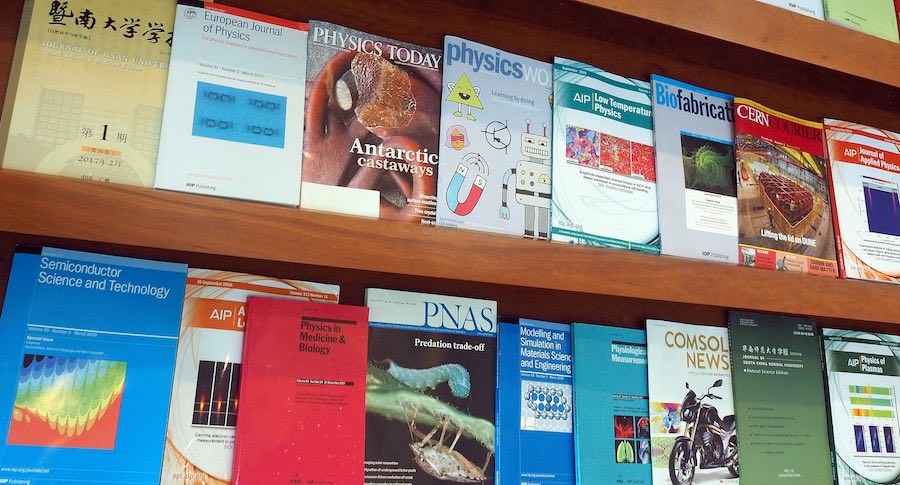How to Master Publishing
Our resident Agony Aunt offers guidance on the key questions bothering early-career researchers, with additional advice crowd-sourced from Twitter. In this edition: Publishing!
Arguably, aside from teaching the next generation of researchers, publishing is the defining feature of a career in academia. It’s how we share our results, engage in debate, and develop new theory. It’s also terrifying. But never fear! Cultured Scene is here to give you the tips you need to succeed.
Before you can even begin to worry about those pesky editors and reviewers, you’ve got to actually write the manuscript. Now, the research is your own problem, but we can give you some tips for a (relatively) stress-free writing experience.

Stuart (@skipsahoi) suggests you pick a journal before you even start writing. You can use previous publications as a guide, and also make sure you follow the journal’s style guide – it will be available on their website. This also means you can tailor the paper to the journal somewhat – if it’s a journal for publications about all non-human animals, you may want to reference a broader literature than if it’s a journal only for primate research, for example.

A wealth of advice from Michael (@PsychMikeB)! Know your audience – like fitting your manuscript to the journal, you also need to fit it to your audience. Figure out the ‘story’ your research is telling, and then tell that story in a compelling way – make the reviewers love the story as much as you do. Writing with co-authors can be tricky – you may not get everything your own way in terms of style (my own love of em dashes rarely makes it into the final manuscript! Luckily I can use as many as I like in Cultured Scene).

So you have your manuscript. Time to edit! Alba (@AlbaMotes1) suggests checking the basics. Do your figure and table numbers match the text? Have you got multiple “Figure 3”s floating around, lying in wait to confuse and annoy a reviewer?

With a little help from Sum 41, Stuart reminds us that academic success may indeed be “closer than it is too far” – if you take a step back and hand your precious manuscript over to some-one dispassionate for a final check. A fresh pair of eyes will pick up any remaining errors you missed in your edit, and someone new to the paper will ask you to clarify all those things that seem obvious to you, the world’s only expert on your paper, but are completely incomprehensible to someone who wasn’t in the room while you collected your data.

Michael concurs – get some outside feedback before you subject your manuscript to peer review. As an editor, Michael also highlights the importance of the cover letter. Don’t make an editor root through your entire paper to work out what your keys findings are and why they matter, tell them! Give them the information they need to find great reviewers who will help you improve your manuscript and get your research out there.

Now, on to those reviews. The scariest thing about publishing is receiving that first batch of reviews back. Of course, getting others to read your paper and comment before you submit it for peer review will help to catch any major issues before the dreaded reviewers get their hands on it. But nothing is ever perfect, and your reviewers may well request significant changes. Jenny (@VervetJenny) suggests putting the reviews aside for a few days, and coming back with a fresh outlook. Don’t revise in anger! Negative comments, even about minor issues, can feel really upsetting – after all, you’ve been perfecting this manuscript for months! Take a step back, follow Jenny’s advice and eat some chocolate, and then make your edits. You’ll end up feeling the paper is that much stronger.

Alba has some pragmatic advice for managing your revisions. Colour code away, and deal with the easy stuff first. Once the ball gets rolling on making edits, you’ll find you fly through them. So that’s our crowd-source wisdom on publishing. Safe travels, my early-career friends, and may the gods of publishing smile upon you and your manuscript.
One final piece of crucial advice though – once your paper is published, don’t forget to do one of our Pitch of Publication interviews or write an article on it for Cultured Scene!
Do you have a question for our Agony Aunt? Email Rachel at journalsec2@eslr.co.uk and tap into the wisdom of the crowd.
About the author
Rachel is the ESLR Journal Secretary. She is currently a postdoctoral researcher at the University of Lausanne, studying social learning biases in children from a comparative perspective.
If you would like to contact Rachel about contributing to Cultured Scene, she can be reached at journalsec2@eslrsociety.org
